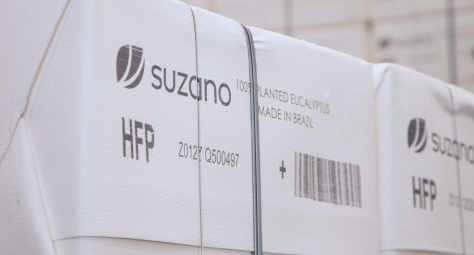sobre o que você deseja falar?


perguntas, sugestões ou problemas técnicos envolvendo a plataforma

informações sobre a empresa


For Suzano, occurrences refer to all expressions from stakeholders concerning its activities and products. These can be categorized as complaints, inquiries, compliments, suggestions, opinions, and more. Consequently, occurrence management involves receiving, documenting, processing, and responding to these expressions related to forest management, industrial operations, and port activities.
The occurrences module of the company's Relacione+ System handles occurrence management. This tool manages relationships with surrounding, local, and traditional communities and other stakeholders. It records, monitors, and evaluates all occurrences reported to the company through its communication channels.
The communication channels available for registering incidents related to the environmental, social, and economic aspects and impacts resulting from Suzano's activities and products are: Suzano Responds, Contact Us¹ from the regional office (toll-free number), Floresta Viva, Operational Dialogue, Face-to-Face Agenda, and Odor Perception Network (RPO), in addition to face-to-face dialogue, sending emails, and conducting satisfaction surveys.
Each month, the Social Relations area assesses the quality of the services provided and the effectiveness of the actions taken in response to reported incidents. This evaluation uses the Index of Satisfaction in Attendance to Occurrence, which represents, as a percentage, the average satisfaction scores given by the individuals who submitted complaints.
Alongside this assessment, we monitor the average time taken to address incidents based on the classifications outlined in the incident management procedure. The response time indicator reflects the days from when an incident is reported until it is resolved and closed in the Relacione+ System.
To help minimize the negative effects of timber transportation operations, Suzano has invested in employee training focused on traffic education. Additionally, the company has improved communication channels to reduce response times and better address the needs of the communities.
During long-term operations, measures are implemented to enhance control and adaptability, aiming to minimize the generation of impacts. Additionally, in cases where unforeseen adverse effects result in losses and damage to rights, appropriate compensation for stakeholders or mitigation efforts are carried out based on the specific circumstances of each case.
The list below outlines the primary complaints received in 2024. It highlights that Suzano's most significant adverse operational impacts for the year are related to wood transportation. These impacts include dust generation, noise and odor nuisances, damage to public and private property, an increased risk of accidents, and deterioration of the road network. Other impacts were more specific and did not occur uniformly. Additionally, prevention and mitigation measures are provided for each issue.
Examples of adverse social impacts and control actions
Impact: dust nuisance.
Preventive and mitigating measures: reducing dust by wetting the roads, using water trucks, and speed control.
Impact: odor nuisance.
Preventive and mitigating measures: assessment of all operational areas of the plant, measuring equipment, and visits to the community where the complaint was made.
Impact: damage to public and private property.
Preventive and mitigating measures: compensation and reparation process, seeking to restore the situation to the status quo or offer fair compensation to the affected parties.
Impact: increased risk of accidents.
Preventive and mitigating measures include reduced and controlled speed, mandatory stops to check and re-tighten the load transported, voluntary traffic safety campaigns, driver training, and safe signage.
Impact: compromising the quality of the road network.
Preventive and mitigating measures: road maintenance during operations, monitoring and weight control of timber trailers.
The tables below provide the following data:
Note:
Contact us: Bahia, Espírito Santo and Minas Gerais (0800 283 8383); Ceará, Maranhão, Pará, São Paulo and Tocantins (0800 771 1418); Mato Grosso do Sul (0800 642 8162).
| 2020 | 2021 | 2022 | 2023 | 2024 | |
|---|---|---|---|---|---|
| % | % | % | % | % | |
|
Bahia |
n/d |
90.33% |
90.00% |
95.00% |
84.66% |
|
Espírito Santo |
90.00% |
90.30% |
90.00% |
88.66% |
87.00% |
|
Maranhão |
n/d |
89.30% |
90.00% |
85.66% |
92.67% |
|
Mato Grosso do Sul |
80.00% |
89.33% |
89.33% |
89.50% |
82.85% |
|
São Paulo |
n/d |
82.00% |
90.00% |
90.00% |
97.20% |
|
Total |
85.00% |
88.26% |
89.67% |
89.72% |
87.87% |
| 2020 | 2021 | 2022 | 2023 | 2024¹ | |
|---|---|---|---|---|---|
| overall number | overall number | overall number | overall number | overall number | |
|
Bahia |
34 |
16 |
48 |
37 |
203 |
|
Espírito Santo |
94 |
123 |
175 |
65 |
346 |
|
Maranhão |
72 |
18 |
22 |
43 |
267 |
|
Mato Grosso do Sul |
36 |
30 |
69 |
117 |
136 |
|
São Paulo |
233 |
504 |
784 |
482 |
915 |
|
Total |
469 |
691 |
1,098 |
744 |
1,867 |
| 2024 | ||||||
|---|---|---|---|---|---|---|
| São Paulo | Maranhão | Espírito Santo | Mato Grosso do Sul | Bahia | Total | |
|
Change in water availability (quantitative and interruption in supply) |
13 |
2 |
6 |
3 |
1 |
25 |
|
Increased cases of crime in the context of large-scale development (cases of theft, sexual, domestic and family violence against children, adolescents and women, etc.) |
7 |
3 |
13 |
4 |
0 |
27 |
|
Increased risk of accidents (people and animals) |
35 |
13 |
12 |
7 |
2 |
69 |
|
Compromising the capacity or quality of the road network |
99 |
28 |
34 |
28 |
13 |
202 |
|
Economic damage caused by product drift¹ in neighboring areas |
32 |
2 |
8 |
9 |
10 |
61 |
|
Damage to public and private property |
124 |
70 |
47 |
55 |
16 |
312 |
|
Dust nuisance |
163 |
57 |
21 |
12 |
11 |
264 |
|
Odor nuisance |
196 |
12 |
4 |
1 |
0 |
213 |
|
Irregular occupations (APP², RL³, plantations, roads, firebreaks, nurseries, etc.)/Irregular occupations (social movements) |
10 |
10 |
10 |
0 |
1 |
31 |
|
Loss of credibility in communities |
15 |
0 |
14 |
0 |
0 |
29 |
| 2020 | 2021 | 2022 | 2023² | 2024 (média de 45 dias)³ | 2024 (média de 60 dias)³ | 2024 (média de 90 dias)³ | |
|---|---|---|---|---|---|---|---|
| average | average | average | average | average | average | average | |
|
Bahia |
113,99 |
85,49 |
153,04 |
160.00 |
89.60 |
56.30 |
114.80 |
|
Espírito Santo |
56.00 |
54,04 |
82,07 |
139.95 |
106.80 |
58.90 |
93.00 |
|
Maranhão |
37,12 |
77,64 |
54,86 |
42.51 |
35.60 |
25.40 |
46.70 |
|
Mato Grosso do Sul |
115.00 |
120,43 |
132,82 |
157.32 |
229.40 |
486.60 |
257.10 |
|
São Paulo |
97,75 |
63,64 |
50,08 |
54,88 |
142.80 |
205.80 |
337.00 |
|
Total |
83,97 |
80,27 |
94,57 |
118.67 |
126.10 |
123.90 |
214.70 |
Note:
Contact us: Bahia, Espírito Santo and Minas Gerais (0800 283 8383); Ceará, Maranhão, Pará, São Paulo and Tocantins (0800 771 1418); Mato Grosso do Sul (0800 642 8162).
The occurrence management process and its results include operational units, which consist of the factories and forestry bases that supply these units, as represented by the states in the tables below: